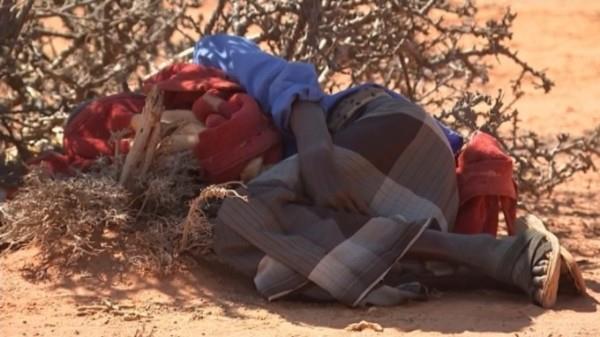
Somaliland: Tailing Corruption on International Donations
Due to the INGOs assertion of security reasons, almost all the international organizations have their regional headquarter offices in Nairobi, Kenya, but that security declaration does not hold water, because Hargeisa Somaliland is much safer, securer and is a less expensive city than Nairobi. On that point, there is no reason whatsoever for the INGOs not to move their offices to Somaliland.
The INGOs remote offices in Nairobi create bureaucratic headache for both the Somaliland government and especially for the communities in an immediate need of live-saving services. Most of the time, the bureaucratic thread of communications from Hargeisa, Somaliland does not end in Nairobi, but it goes continents away to- and- forth New York, USA or Geneva, Switzerland. For example, a supply of a truck load of rice to certain village can create a very big bureaucratic hassle.
The largest percentage of a dollar intended to safe live in Somaliland is spent on expensive air travels, hotel stays and travel stipends for the INGOs bureaucrats, who additionally enjoy collecting big salaries and they brag about the Air miles rewards they have collected as result of their frequent flying schemes. As consequence, many INGOs have become a very pitiless and lucrative business ventures for bureaucrats rather than agencies of benevolence and goodwill.
The hiring system of the INGOs is also utterly inequitable, instead of hiring qualified local Somalilanders, the INGOs resort to hiring less qualified and less efficient foreigners, who do not speak the Somali language, do not understand the culture of the land and have no in-depth knowledge of the specific needs of the communities they are supposed to intimately serve.
It is heartbreaking to note that some UNO agencies even outsource their services to smaller agencies and less often to local NGOs. These time consuming, corrupt and bureaucratic processes double or even some times quadruple the administrative cost. For instance, there are many UNO organizations with their international headquarter in New York, have regional offices in Nairobi, Kenya, a country offices in Hargeisa, Somaliland and a branch office/ outsourced NGO office in Burao, Somaliland. All these offices charge administrative costs and also build-up bureaucratic vicious circle, hence, a disservice to the needy communities in Somaliland.
Der Wassertruck ist im IDP-Camp (Flüchtlinge im eigenen Land) bei Ali Heelo angekommen. Dirk Schumann (Cap Anamur Krankenpfleger) packt mit an.Wasserprojekt der Hilfsorganisation Cap Anamur im Süden von Somaliland für 13 Flüchtlingscamps und Dörfer mit ungefähr 13.000 Menschen. Es hat seit 3 Jahren nicht mehr geregnet
This horror story does not end there; most of the INGOs lack transparency and accountability. The auditing system in the Somaliland government does not seem to have a control over the INGOs. Due to the government lack of control the INGO treat the people and government of Somaliland as their own subservient subjects - this is morally wrong.
The NGOs independently design programs that do not fit the needs of Somaliland communities. For instance, they do water- trucking in places where there is an abundance of water supply or they supply grains during the harvest seasons, when food is plentiful in Somaliland and they keep peaceful silence, when there is dire need for water and food supplies. It will be more beneficial to the Somaliland communities and more cost effective for the donor nations if elimination of the root cause of droughts, outbreaks of infectious diseases and other disasters are prevented or even managed in a timely manner.
Even the office of the representative of the UNO Secretary General treats Somaliland unfairly, this is obvious in his statements to the Security Council of UNO, and he habitually puts quotation marks around the word Somaliland ('Somaliland'), as if Somaliland is just a contention and not a De Facto state. At the same time, he writes the word Puntland properly and without quotation marks, Puntland is region in Somalia, which historically did not exist and was created just about a decade ago as an anarchic Somalia tool for destabilizing the peaceful and fully democratic Somaliland.
As a matter of fact, the people of Somaliland are feed-up of the international double standard, negligence and inhuman treatment of its venerable communities. It is about time that the Somaliland government must stand up for its people and uncover the bureaucratic corruption of the INGOs and especially of those of the UNO.
The Somaliland government must directly ask the international community to channel their donation either directly to the Somaliland government or through credible funds such as the Somaliland Development Fund (SDF), which is a mutually and directly co-managed fund by the government of Somaliland and the international donor nations.
The Somaliland government additionally needs to put more teeth on its auditing checks on INGOs. The current system of international donations to Somaliland is nothing but a band-aid on a bleeding heart. If managed properly the international donations will strongly attain their goals of preventing human catastrophes and creating much needed jobs for the local Somalilanders, thus, contributing to the growth of the local economy and establishing real projects and at the same time getting rid of the present INGOs' 'white elephants'. Finally, for the benefit of Somaliland communities and the satisfaction of the international taxpayers, the international donations need to be managed effectively and efficiently. The INGOs must change their old pattern of doing business and listen to the government and communities they are supposed to serve wholeheartedly.
Also by the same author By Dr. Yusuf Dirir Ali, MD
- Somaliland:
- Somaliland:
- Somaliland not getting frozen in time
- Somaliland: national sovereignty, global prosperity and security

Legal Disclaimer:
MENAFN provides the
information “as is” without warranty of any kind. We do not accept
any responsibility or liability for the accuracy, content, images,
videos, licenses, completeness, legality, or reliability of the information
contained in this article. If you have any complaints or copyright
issues related to this article, kindly contact the provider above.

















Comments
No comment